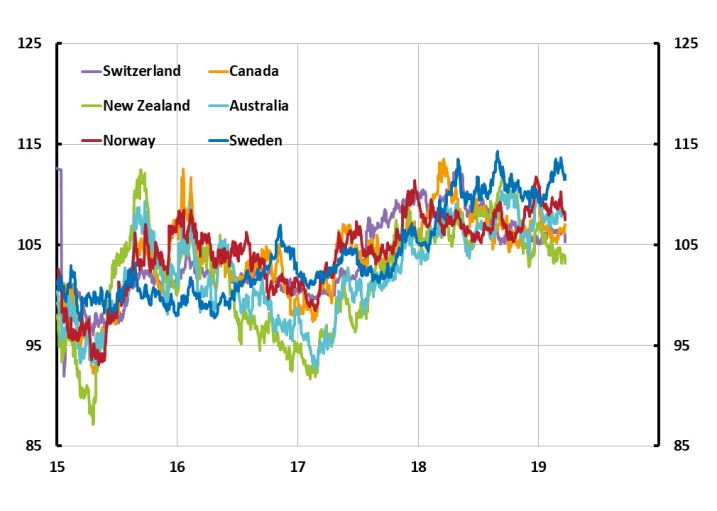Ingves: Inflation target and floating exchange rate have worked well in Sweden
News There is lively discussion about the weak krona. Why is the Riksbank not doing something about the exchange rate? Are Swedes getting poorer? These issues and a few more are discussed by Stefan Ingves in an article in the Swedish daily Dagens Nyheter on the day the Riksbank publishes its annual report “Account of monetary policy”.
Here are the most important conclusions in the article:
- The system of inflation targeting and a floating exchange rate has worked well in Sweden since it was introduced in conjunction with the crisis in the early 1990s. It has given us lower and more stable inflation than previously and has also contributed to good growth in output and employment.
- But a floating exchange rate means that its value is freely determined on the market. A choice has to be made, and with an inflation target, movements in the exchange rate are unavoidable. The Riksbank cannot, and should not, stabilise both inflation and the exchange rate.
- The weakening of the krona is due in part to the expansionary monetary policy, but also, since the beginning of 2018, to a deterioration in the outlook for growth in the Swedish economy.
- Global factors seem also to have played a part. The currencies of other small economies with substantial foreign trade are showing a similar pattern to the krona (see Figure). One explanation may be the uncertainty about the prospects for global trade created by, for example, Brexit and the trade conflict between the United States and China.
- An argument in the debate has been that the weak krona has made Swedish people poorer. One effect, of course, is that it will be more expensive for Swedes when they are abroad. But using common measures of prosperity, such as GDP per capita, developments in Sweden since the financial crisis have been relatively good.
- In Sweden, the Government decides whether the exchange rate should be fixed or floating. It is the Riksbank’s view that the system we have had since the mid-1990s has been very positive for the Swedish economy and there is good reason to assume that it will continue to be so.
Developments in the currencies of small open economies in relation to the euro
(Index 2015 = 100. A higher value means a weaker exchange rate)

Contact: Presstjänsten 08-787 02 00
Updated 27/03/2019
